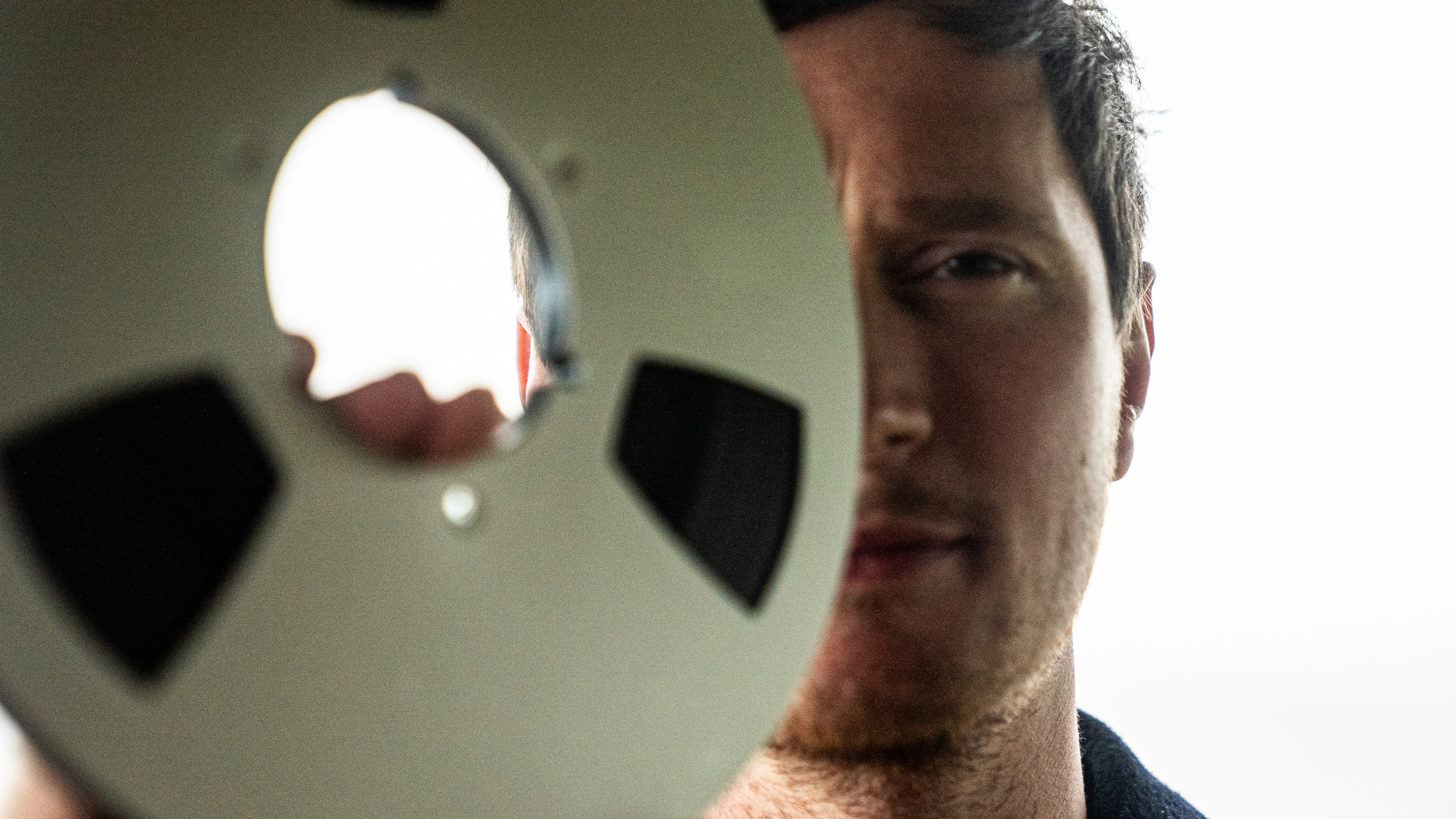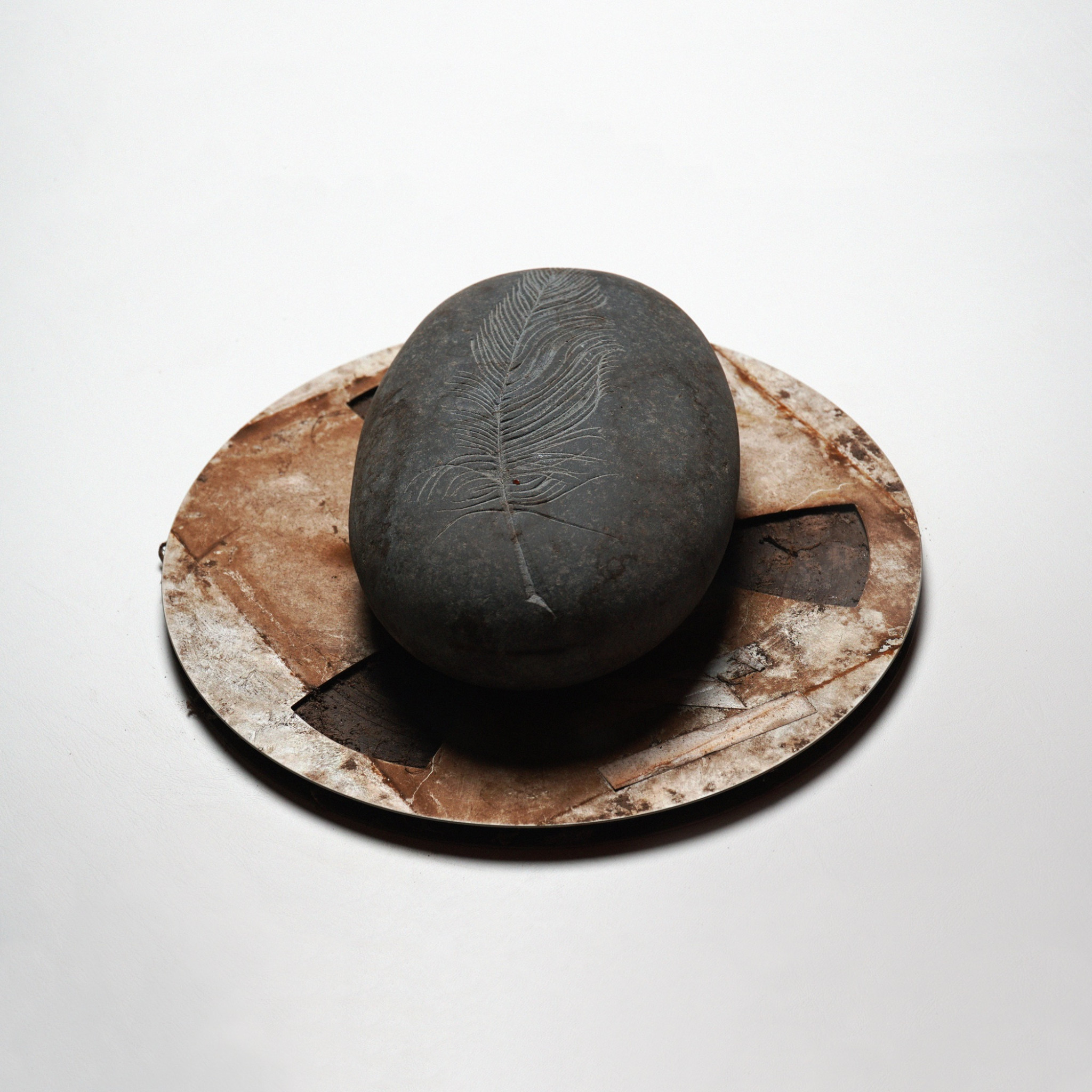Erland, what are some of your earliest memories of music and sound?
I had a remarkably fortunate upbringing on a remote Scottish Island, pre-internet and smartphones, surrounded by the elements. I remember the low rumble of the ocean, the wild winters that really closed in and people would huddle together in quiet corners and tell stories, and then these long, expansive, bright summers of birdsong, just cities of seabirds above the cliffs. There were a lot of traveling folk musicians too. There would be folk festivals, and the annual classical festival, which is now very prestigious.
What kind of music did you listen to aside from folk and birdsong?
Everything from Pulp to Prokofiev. My parents had a record collection upstairs in what we called the “special sitting room”, where me and my five siblings were not allowed to play. They had this old wooden record player and a record collection from Simon & Garfunkel and The Beatles all the way through to Peter and the Wolf. My friends were either playing football or chasing girls, but I was quite introverted; I’d hide in the music room at school, learn how to use the instruments and media interfaces. Of course I’d also do what normal kids are doing – go to a party, listen to [Underworld’s] Born Slippy, stuff like that.
How did you get into professional music making then?
In my 20s, I landed in London and met Simon Tong, guitarist in The Verve. He took me under his wing, and we cut a debut record in six weeks. Before I knew it, I'm fronting a shoegaze folk rock band, and Paul Weller lifted us up to support him on tour. That led to another collaboration, The Magnetic North. I’d listened to a lot of folk and blues, but now I’d developed an interest in electronic, ambient and classical music. So I was producing, collaborating and helping other artists elevate their work, but I was also making my own work, and here we are now. I feel like I’ve just warmed up though.
The new piece is a solo violin concerto. How did you end up writing it?
I had explored traditional orchestral techniques on my ambient albums. Then I watched [violinist] Daniel Pioro perform at the Proms, a piece with an orchestra, written by Jonny Greenwood from Radiohead. I found it inspiring. Daniel and I became friends. One day I said to him: I'm going to write you a classical violin concerto, but here's the catch. We're going to record it beautifully, but Daniel, once we're done, I'm going to put it on tape and I'm going to delete every digital file, and we'll go to Orkney and bury the tape – or rather plant it into the earth. We knew that no matter what it sounded like going in, it could come out of the ground completely distorted. It was always going to be three years and I would go and collect it.
But the tape got dug up before that time. Who found it?
Local residents, Dan and Victoria Rhodes. A lovely couple, they live in Orkney. She's a projectionist in the local cinema, and he's a bass guitarist in a band. They worked hard to find it, figuring out the clues, looking at the rock formations below my feet – quite sleuth-like detective work. One and a half years after I planted the tape into the ground, they called my mobile. I'd written the number on a letter buried with the tape and the violin. They said, hi, we've got your tape and a rather gammy-looking violin in the back of the car. I remember texting my dad, and him saying, well, it might not have survived another Scottish winter. It might just be the perfect amount of destruction. And he's absolutely right.
I'm sure you're aware of William Basinski and his Disintegration Loops (2001), which consists of looped decaying tape recordings. I wondered if that work was an inspiration for this project?
Not for this one specifically. William’s music was a huge inspiration to the ambient works I've done. But yeah, disintegration, that makes sense. The idea is that we're accelerating disintegration. That's what the soil is doing. These artifacts of tape, they're very musical to me. For me, there's beauty in things that others might find ugly.
Was that the main idea behind this specific project?
That, and to understand the value of value, in a world of instant gratification and oversaturation. Having discarded it in the soil, this thing became so valuable, the most precious thing in the world. To risk losing it all was to focus on the arts as a whole. And then also, there have been a few words that have been following me around, things like “nature's songwriter”. So I thought to myself, how can I work harder to truly warrant such hyperbole? Instead of writing about nature, which many British composers have done, I wondered if I could write with nature, as a collaborator.
When you first heard the tape, how had it changed?
Hearing it again was like dancing with the ghosts of memory. This music was written in 2020. For a while, it only existed in the memory of the players that recorded it and myself. So I would hum parts in the shower, but I couldn’t remember it all. I just pressed play as it started to come off and hit me. And then 15 minutes into the piece, halfway through it, the tape went completely silent for a minute and a half. So I'm thinking to myself, well, I'm going to message everybody and say, look, we've got half a concerto. That's not bad! (laughs) All of a sudden, I heard the sound of footsteps and the noise of the violin slowly creeping up again. I had forgotten that I’d written two minutes of silence into the score. When I was a boy, we would have Remembrance Sunday once a year, where you would sit for two minutes silence and remember those lost in war.
Those two minutes of silence are on the record, right?
Yeah, that was actually the first single we released. Everybody in the team said to me, you can’t do that! Look, we can’t write to Spotify and say, here’s Erland’s latest single and it’s two minutes of white noise. But you know what? They did. I'm really proud of them. They released another single the next day.
Interview by Stephan Kunze


